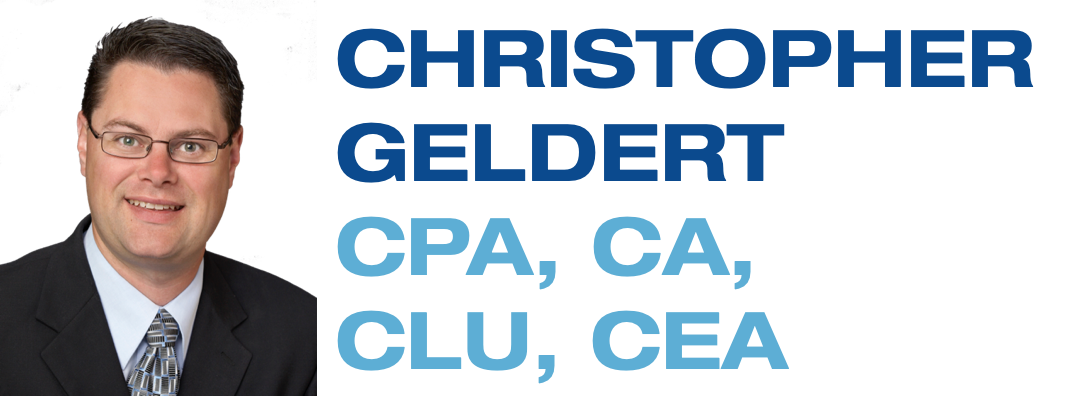Chris Geldert CPA, CA, CLU, CEA
Navigating corporate structures and the insurance world can be difficult. I specialize in assisting business owners protect, realize and transfer the value of their business and corporate wealth. I guide owners through the process and work with their various professionals to ensure solutions implemented properly manage risks and maximize benefits. Above all, I work to earn your business.

Why A Buy-Sell Agreement Is Vital For Your Business
Blog, Business Owners, Buy SellOptimizing Wealth Through Asset Re-Allocation
Blog, Investment, Life Insurance, taxTax tips to know before filing your 2023 income tax
2024, Blog, corporate, Family, financial advice, Financial Planning, taxHow To Use Insurance To Provide Your Family With Financial Protection
Blog, Life InsuranceAlberta’s 2024 Budget Highlights
2024, BlogDonating to Charity Using Life Insurance
Blog, Charitable Gifting, Life InsuranceTFSA vs RRSP – 2024
2024, Blog, Business Owners, Estate Planning, Family, financial advice, Financial Planning, individuals, Investment, personal finances, Professionals, Retirement, RRSP, Tax Free Savings AccountDebt Is a Four-Letter Word
Blog, DebtAre You On The Right Track?
Blog, Investment, Retirees, Retirement, RRSP, Tax Free Savings Account2024 Financial Calendar
2024, Blog, Business Owners, financial advice, Financial Planning, individuals, personal finances, Professional Corporations, Professionals, Retirees, tax